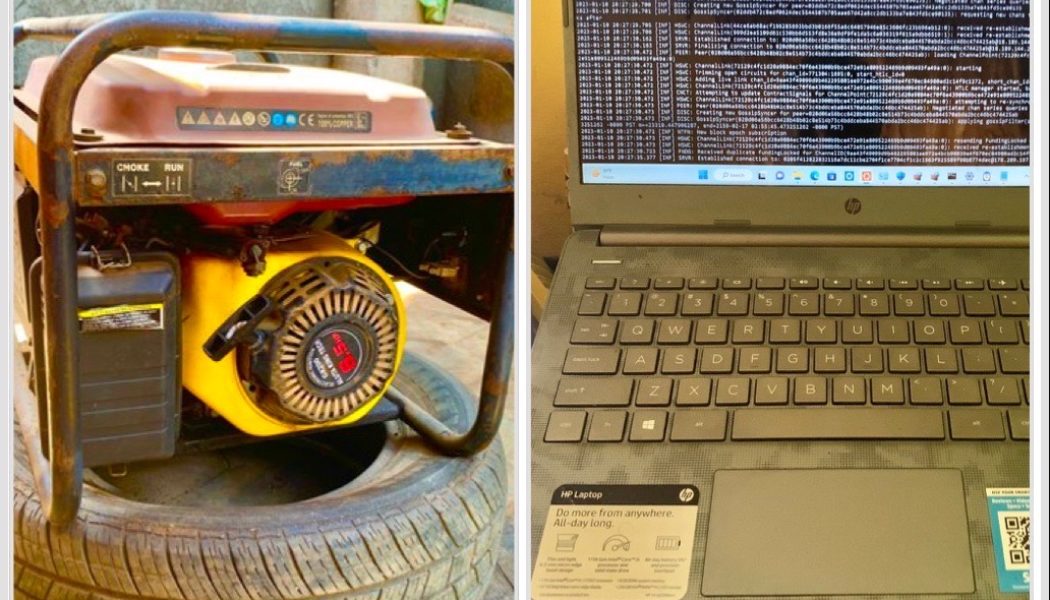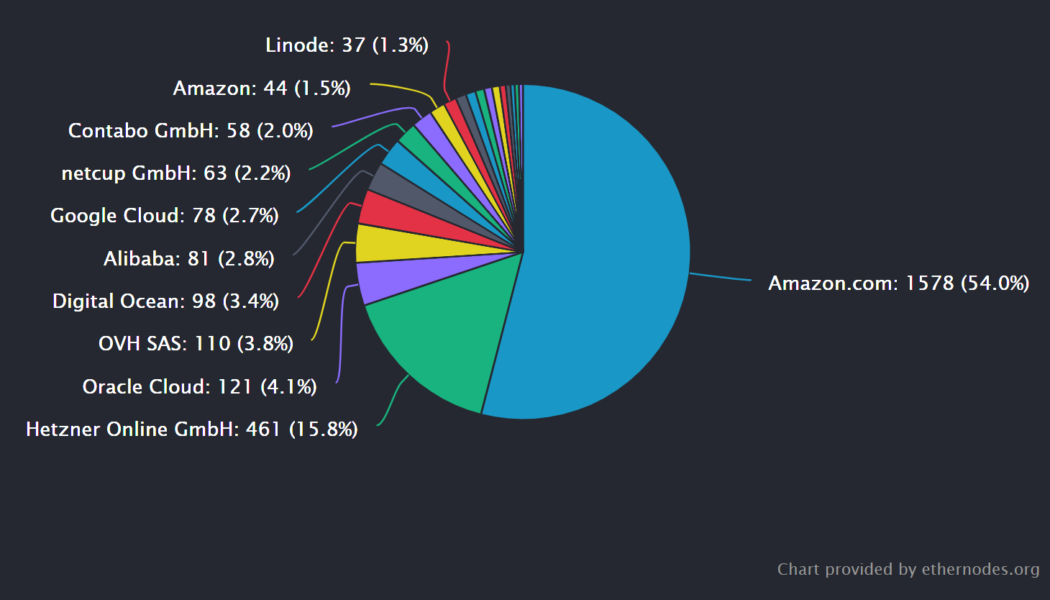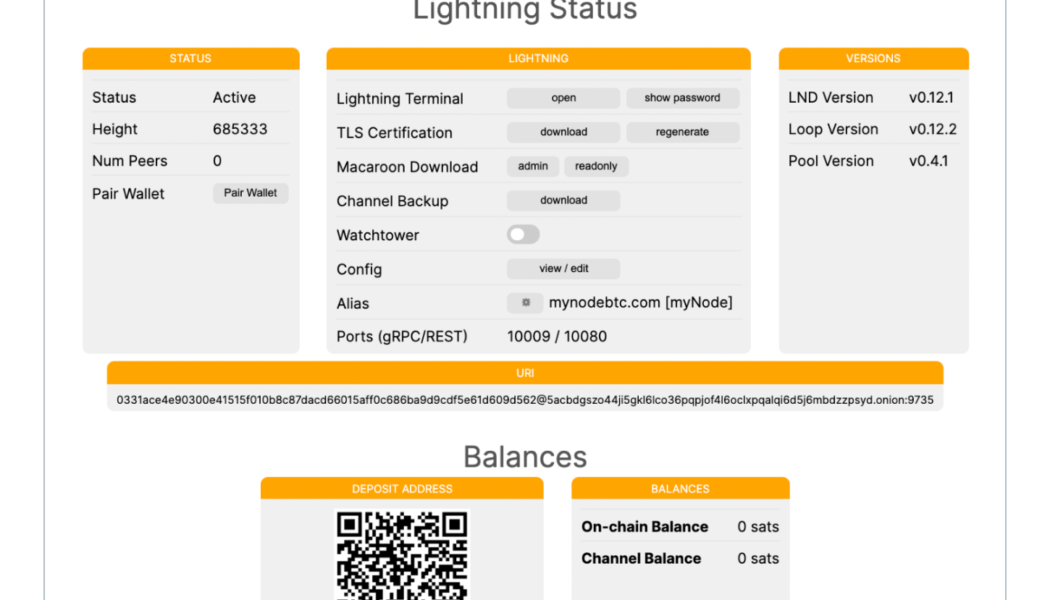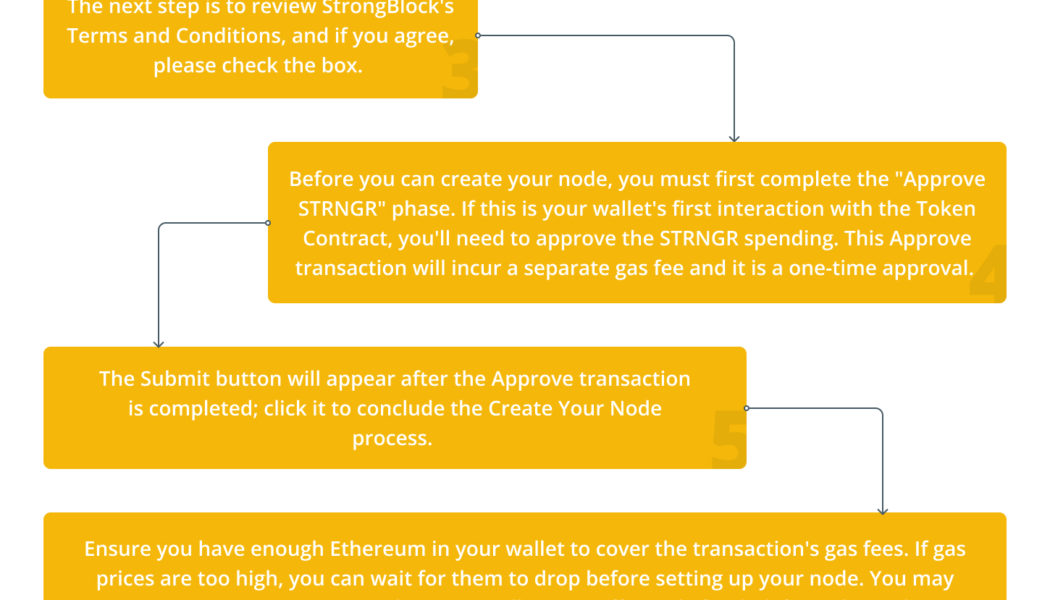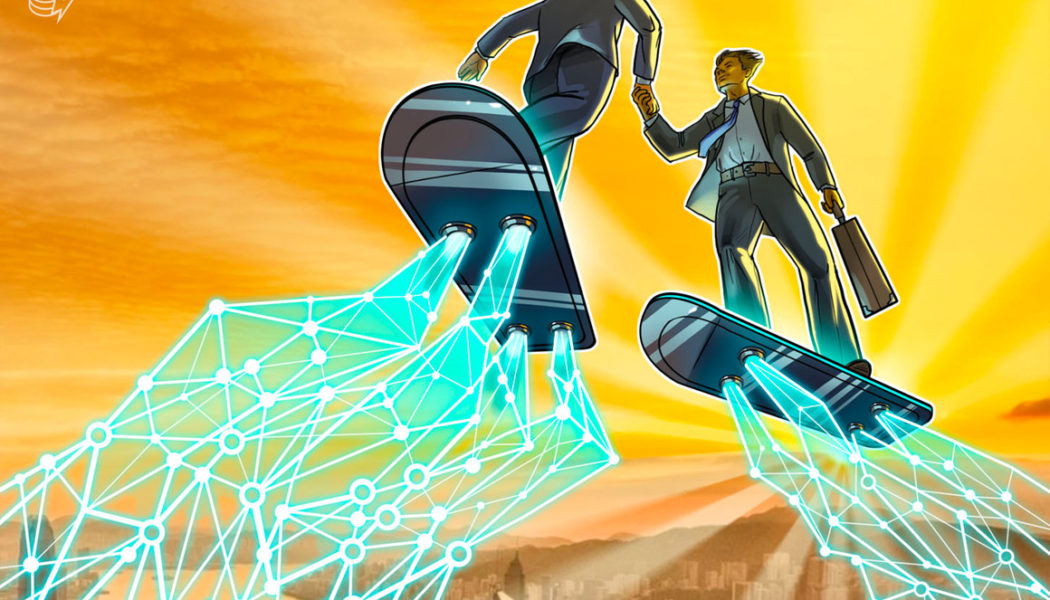Nodes
Nigerian innovator launches first active Bitcoin Lightning node in the country
The Lightning Network has struck the earth in one of the most challenging operating environments. Lagos, the capital of Nigeria — Africa’s most populous country — welcomed a new Bitcoin Lightning Network (LN) node this week, a vital step to better connect the continent to the layer-2 payments network that sits atop Bitcoin. The node runs on an old laptop powered by a diesel generator, as Lagos regularly experiences energy and electricity blackouts. Megasley’s diesel generator and laptop running the node. Source: Megasley In a discussion with Cointelegraph, Megasley, who operates the first Nigerian Lightning node of 2023 and the first active Lightning node in the country (other nodes are dormant), shared his vision for bringing instant, low-cost payments to Africa thanks to the LN. ”L...
Bitcoin nodes data: Frankfurt houses the largest city-wide network
While the United States holds the biggest share of Bitcoin (BTC) hash rate contribution and ATM network, the city hosting the most reachable Bitcoin nodes — a crucial pillar of the Bitcoin network — is Frankfurt, Germany. Cast your vote now! Bitcoin nodes are a distributed network of computers that run the Bitcoin software and accept a set of proof-of-work (PoW) consensus rules to validate and broadcast transactions on the blockchain. Of the 43,706 nodes hosted across 134 countries, the U.S. hosts 9,999 (30.53%), while Germany ranks second with 4,529 (13.83%) nodes, according to data from Bitnodes. List of top 10 countries with most number of Bitcoin nodes. Source: Bitnodes However, when it comes to the contribution of individual cities, Frankfurt was found to host the largest nu...
Nodes are going to dethrone tech giants — from Apple to Google
While highly regarded even at the time of its writing, Marc Andreessen’s 2011 landmark essay, “Why Software Is Eating the World,” has proven even more prophetic than it seemed at the time. At the dawn of a decade when software would prove invaluable to nearly every aspect of modern life, Andreessen argued that every company was now ostensibly a software company, whether the company liked it or not. Tailoring his argument to many of the companies that were market leaders at the time, his ideas eventually also applied to companies that either hadn’t fully defined their markets or didn’t even yet exist but would go on to generate billions in market share: Uber, Lyft, TikTok/ByteDance, Robinhood and Coinbase, among several others. If you were going to be a unicorn in the 21st century, software...
Downsides of Proof-of-Work and Proof-of-Stake, explained
Proof-of-Work and Proof-of-Stake are arguably the best-known consensus mechanisms — but new ones are continually emerging. PoW blockchains have long dominated the cryptocurrency landscape, with both Bitcoin and Ethereum using this model. This means miners are responsible for securing the network and validating transactions — and they get rewarded with new coins as a result. However, a common criticism surrounding Proof-of-Work relates to how much energy it uses, and the impact such blockchains have on the environment. Miners need to use vast amounts of computing power to solve arbitrary mathematical equations. More advanced hardware has been required as the industry matured, with electricity usage surging too. This has led Proof-of-Stake to be regarded as a mo...
Hetzner anti-crypto policies: A wake-up call for Ethereum’s future
Just when the Ethereum ecosystem reached its final stages in preparing for the much-anticipated upgrade, The Merge, german cloud provider Hetzner, reiterated its stance against allowing mining operations for both proof-of-stake (PoS) and proof-of-work (PoW) applications. Hetzner, a private, centralized cloud provider, stepped in on a discussion around running blockchain nodes, highlighting its terms of services that prohibit customers from using the services for crypto activities. However, the Ethereum community perceived the revelation as a threat to the ecosystem as Hetzner’s cloud services host nearly 16% of the Ethereum nodes, as shown below. Ethereum Mainnet Statistics. Source: ethernodes.org In crypto, the reliance on centralized service providers has been historically perceived...
Can you earn passive income running a Lightning node?
The prerequisites to run a Bitcoin Lightning node include an amount of Bitcoin to fund your Lightning channel, fiat money to buy the hardware equipment(s), and a Lightning-compatible wallet. Remember that Lightning nodes are non-mining nodes, which means you aren’t mining Bitcoin but are vital to validating Bitcoin blocks. Validation Nodes are the most common name for these. MyNode and Umbrel are two of the most popular specialized hardware options for validation nodes. In just a few simple steps, you can set up a new myNode device. To begin, download the myNode image for your device type and follow the instructions on the download page to flash it to an SD card. After that, turn on the device and connect an external SSD. You’ll be asked to type in your product key. You can sel...
What is StrongBlock (STRONG) and how does it work?
The digital financial environment continues to develop almost every second, which is no surprise to those in the crypto sector. Among such technological advancements, a new project called StrongBlock has popularized the concept of the node as a service (NaaS) on the blockchain. NaaS is an alternative to running entire blockchain nodes on your own; it provides developer infrastructure and tools for setting up and managing blockchain nodes. Connected blockchain nodes relay, transmit and store decentralized blockchain data. But, what is a blockchain node? A node, also known as a Full Node, is a device that stores the blockchain’s whole transaction history. But, who is behind the creation of the StrongBlock ecosystem? The StrongBlock team includes CEO David Moss and chief technology offi...
Ankr partners with Optimism to provide a fast and reliable RPC service for users
Ankr, a company that provides one-click node deployment and Web3 infrastructure, has announced that it will become a remote procedure call provider for Optimism. Optimism is an open-source Layer 2 scaling solution for Ethereum that focuses on speed and efficient transactions across the network. It has caught the eyes of many in recent months, including Ethereum co-founder Vitalik Buterin. This is a great example of why I’m so proud of @optimismPBC for adding non-token governance (the Citizen House). Optimism explicitly has goals *other* than just “make OP go up”, and the only way to do that long-term is with explicit representation of non-token-holder interests. pic.twitter.com/vofVVx53mC — vitalik.eth (@VitalikButerin) June 3, 2022 Ankr has assisted many industry leaders...
Omnichain developer LayerZero Labs raises $135M
On Wednesday, LayerZero Labs, a firm that develops protocol to enable omnichain decentralized applications, or dApps, to span multiple blockchains, announced that it raised $135 million in its latest funding round. The deal values LayerZero Labs at $1 billion and will accelerate the development of its namesake protocol. The round was led by notable venture groups and investors such as Sequoia Capital, FTX Ventures, Andreessen Horowitz, and with participation from Coinbase Ventures, PayPal Ventures, Tiger Global, Uniswap Labs, and more. It aims to unite applications such as gaming, nonfungible tokens, or NFTs, marketplaces, media apps, etc., so they are operable across multi-chain realms. Potential new use cases via LayerZero include: decentralized finance applications utilizing trading, bo...
